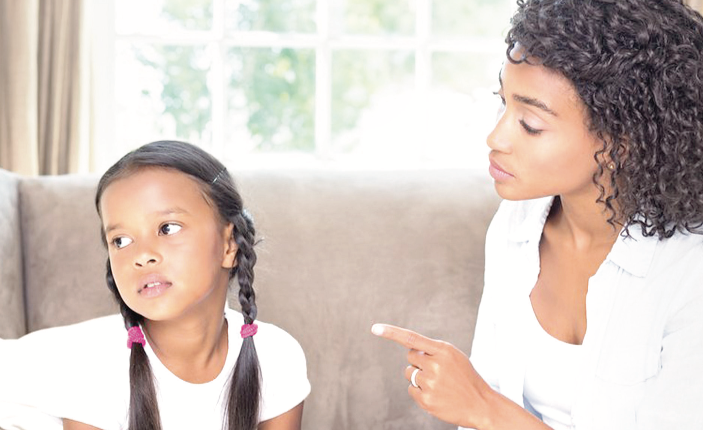When you don’t like your child’s friends

As a parent, you probably love watching your child make friends. It’s wonderful to see their social skills (and social lives) bloom, to see them play and laugh, and to know they are learning to support—and be supported by—their pals. Science even says that friendships can boost your child’s success in key ways: Children with close friendships have higher feelings of self-worth in adulthood.
But sooner or later, you will probably encounter a friend of your child’s you just don’t like. Maybe the child in question plays too rough, curses, is bossy or a bully, or seems to be up to something—and definitely not something good.
When this happens, most parents feel at a crossroads, questioning their reaction and wondering what steps, if any, to take.
Before you start analysing why you don’t like a particular friend, acknowledge and accept your emotions. It’s extremely common to get that knot in your stomach or furrow in your brow around one of your child’s pals.
“There is absolutely nothing wrong with having unhappy feelings about your child’s friends. Feelings may be unpleasant, but they’re never wrong in and of themselves,” says Carla Naumburg, a clinical social worker and author.
Once you have done this, you can move on to identifying what has you upset and what feelings are being triggered for you. Do you feel fear, anxiety, frustration, or anger, perhaps? Take a deeper look at your discomfort to understand why you’re bristling at your child’s choice of friends.
“You may be concerned about how the friend’s behaviour will impact your child,” explains Nicole Beurkens, a clinical psychologist.
“During the school-age years, these behaviours could be anything from a perceived lack of manners to physical aggression, but they tend to be something that makes you uncomfortable and worried your child will start copying,” she adds.
There’s another facet to this “don’t like the friend” situation, which can be harder to admit. You, as a parent, may dislike something about the friend’s parents. Take time to turn this over in your mind.
“Parents need to be very aware of the line between their feelings and their child’s feelings,” says Beurkens. “It’s easy to assume or expect that the child should feel the same. But parents and children often have different thoughts and feelings, and that’s healthy and appropriate. Challenge yourself to understand where your feelings are coming from. Are they rooted in an experience you had with a friend growing up? Are you worried that your child is experiencing an uncomfortable feeling or situation? “Often the resolution has nothing to do with the child or the friend, and more to do with the parent becoming aware of their own issues and working through those,” says Beurkens.
Ask questions
Learn more about the relationship without passing judgment. According to Naumburg, parents can ask questions such as, “Tell me about your friend. What do you like about them? What do you enjoy doing together?” Parents may learn something that changes their minds about the friend while opening the lines of communication.
Don’t badmouth the other child
Yes, it’s tempting to say something like, “I do not like that boy Ethan!” Try to resist that urge.
“It’s not appropriate to say negative things about the friend or their family—that has the potential to create a rift between your and your child and is likely to create more difficulties as it gets back to the friend/friend’s parents,” advises Beurkens.If you say negative things about the friend, it’s likely to come out when your child explains, “My mum doesn’t want me to spend time at your house anymore.” Don’t put your child in that difficult position.
Shine a light on trouble spots
If you observe something that concerns you, or that you think your child isn’t aware of as problematic, ask questions about the behaviour. You might say, “So how did you feel when Morgan said that to you earlier? Do they often get angry like that?” or “Tyler only seems to call you when they need something from you,” or “You often seem cranky or sad after you hang out with Emma.
Problem-solve together
Give your child a chance to voice their perspective as well. They may have been wondering how to handle the situation and appreciate the opportunity to work out ways to shift the dynamic. “Validating their emotional experience without rushing in to fix it for them is an invaluable parenting tool at any age,” says Sarah Bren a clinical psychologist.
If the pal is behaving in ways that are dangerous or unsafe, feel empowered to break up the friendship. Set hard limits with your children around spending time with that friend. These may range from saying that child can come to our house, but you can’t go to theirs. Or you can hang out after school, but no more sleepovers. In some situations, you may need to say no to any contact at all.
If the situation isn’t dangerous, but you’re not fond of the friend, coach your child rather than acting for them.
“It’s our job to keep our children safe and healthy. It’s not our job to prevent them from experiencing negative emotions or challenging experiences,” observes Bren. “If you are able to identify your own negative feelings about this friendship and also recognize that your child is enjoying this friendship, or perhaps there are bumps and challenges to the relationship that aren’t dangerous, it may be worth sitting back and trusting in your child’s capacity to navigate these rougher waters.”
– Verywellfamily.com












